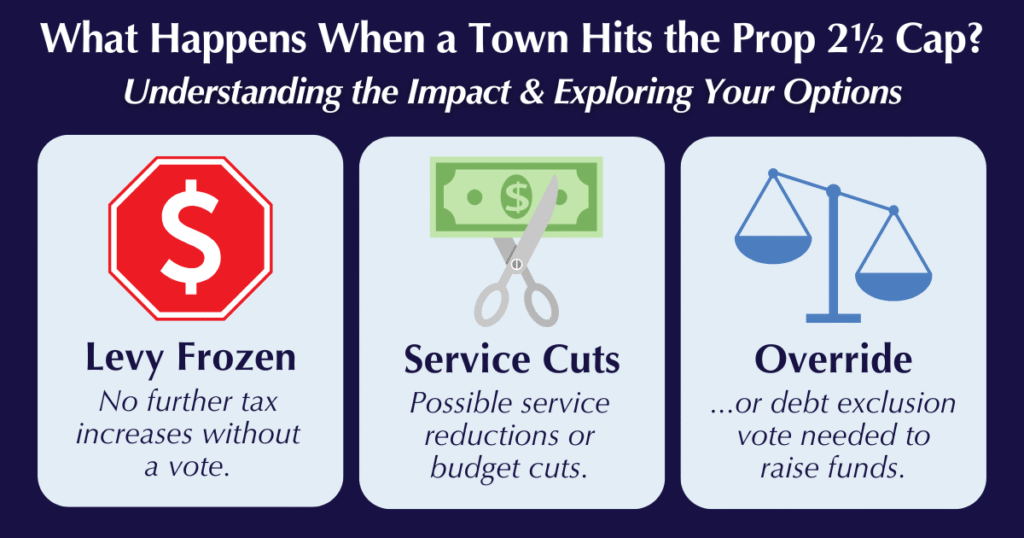Economic fluctuations create significant challenges for Massachusetts municipalities, where property taxes are the primary source of revenue. Proposition 2½, which caps annual property tax revenue increases at 2.5% plus new growth, offers predictability for taxpayers but limits a municipality’s ability to respond to rising costs or declining revenues. During economic downturns, this constraint can force tough decisions about how to fund essential services like education, public safety, and infrastructure.
A key issue is the shifting tax burden between commercial and residential properties. When the commercial tax base contracts—due to business closures or declining property values—residential taxpayers often bear a larger share of the levy. For municipalities with limited commercial development, this can result in higher residential taxes just to maintain basic services. On the other hand, robust commercial activity during economic growth can help offset residential tax burdens, underscoring the need for a diversified tax base.
When these challenges become too great, municipalities may pursue an override of Proposition 2½. An override allows a community to increase its tax levy beyond the 2.5% cap, but only with voter approval through a ballot measure. Overrides often occur when the existing levy cannot support rising costs for schools, public safety, or other critical services. While this provides much-needed funding, it can also place additional strain on residents, particularly in communities already facing high tax burdens.

To minimize the need for overrides and manage fiscal pressures, municipalities can focus on strategies like fostering economic development, maximizing new growth opportunities, and leveraging state and federal programs. Clear and transparent communication with residents about budget priorities and the rationale for an override, if pursued, is essential for maintaining trust and engagement.
Strategic partnerships can also play a key role in helping municipalities identify sustainable solutions within Proposition 2½’s constraints. By balancing short-term needs with long-term planning, Massachusetts municipalities can address immediate tax challenges while building a more resilient financial foundation. Overrides, while sometimes necessary, should be part of a broader strategy to ensure stability and fairness for all taxpayers.
About the Author: Mary Ellen Kelley, Senior Project Manager
Mary Ellen Kelley brings a wealth of knowledge and passion for governance to Capital Strategic Solutions. As the former Chief Financial Officer for the City of Framingham, she played a key role in managing its transition from a town to a city, overseeing a $450 million budget and securing grants. She has also held key roles in state government, including with the Registry of Motor Vehicles and the Senate Ways and Means Committee, enhancing her expertise in governmental financial strategies. Mary Ellen holds an MBA, several certificates in government finance, and is an active member of prominent financial associations.

